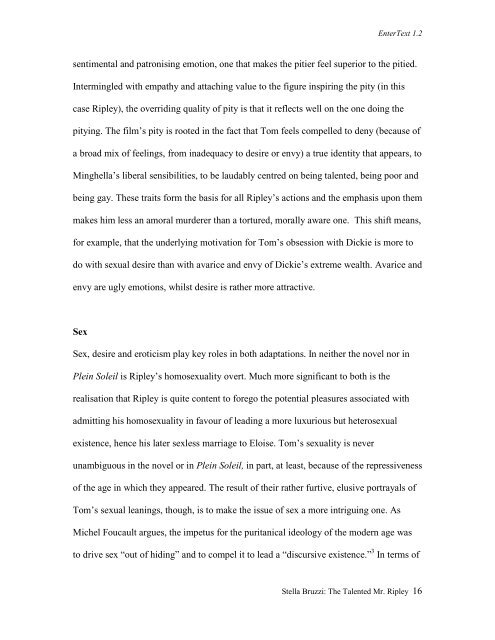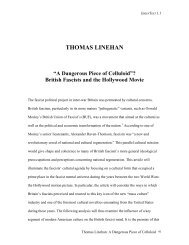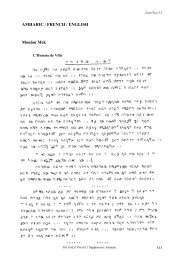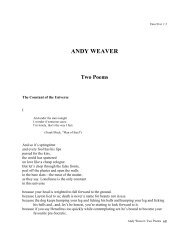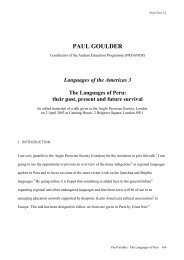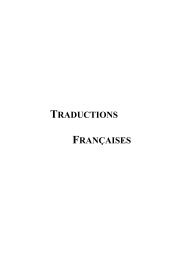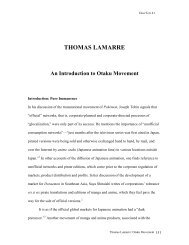Stella Bruzzi: The Talented Mr. Ripley - Arts @ Brunel
Stella Bruzzi: The Talented Mr. Ripley - Arts @ Brunel
Stella Bruzzi: The Talented Mr. Ripley - Arts @ Brunel
Create successful ePaper yourself
Turn your PDF publications into a flip-book with our unique Google optimized e-Paper software.
EnterText 1.2<br />
sentimental and patronising emotion, one that makes the pitier feel superior to the pitied.<br />
Intermingled with empathy and attaching value to the figure inspiring the pity (in this<br />
case <strong>Ripley</strong>), the overriding quality of pity is that it reflects well on the one doing the<br />
pitying. <strong>The</strong> film’s pity is rooted in the fact that Tom feels compelled to deny (because of<br />
a broad mix of feelings, from inadequacy to desire or envy) a true identity that appears, to<br />
Minghella’s liberal sensibilities, to be laudably centred on being talented, being poor and<br />
being gay. <strong>The</strong>se traits form the basis for all <strong>Ripley</strong>’s actions and the emphasis upon them<br />
makes him less an amoral murderer than a tortured, morally aware one. This shift means,<br />
for example, that the underlying motivation for Tom’s obsession with Dickie is more to<br />
do with sexual desire than with avarice and envy of Dickie’s extreme wealth. Avarice and<br />
envy are ugly emotions, whilst desire is rather more attractive.<br />
Sex<br />
Sex, desire and eroticism play key roles in both adaptations. In neither the novel nor in<br />
Plein Soleil is <strong>Ripley</strong>’s homosexuality overt. Much more significant to both is the<br />
realisation that <strong>Ripley</strong> is quite content to forego the potential pleasures associated with<br />
admitting his homosexuality in favour of leading a more luxurious but heterosexual<br />
existence, hence his later sexless marriage to Eloise. Tom’s sexuality is never<br />
unambiguous in the novel or in Plein Soleil, in part, at least, because of the repressiveness<br />
of the age in which they appeared. <strong>The</strong> result of their rather furtive, elusive portrayals of<br />
Tom’s sexual leanings, though, is to make the issue of sex a more intriguing one. As<br />
Michel Foucault argues, the impetus for the puritanical ideology of the modern age was<br />
to drive sex “out of hiding” and to compel it to lead a “discursive existence.” 3 In terms of<br />
<strong>Stella</strong> <strong>Bruzzi</strong>: <strong>The</strong> <strong>Talented</strong> <strong>Mr</strong>. <strong>Ripley</strong> 16


